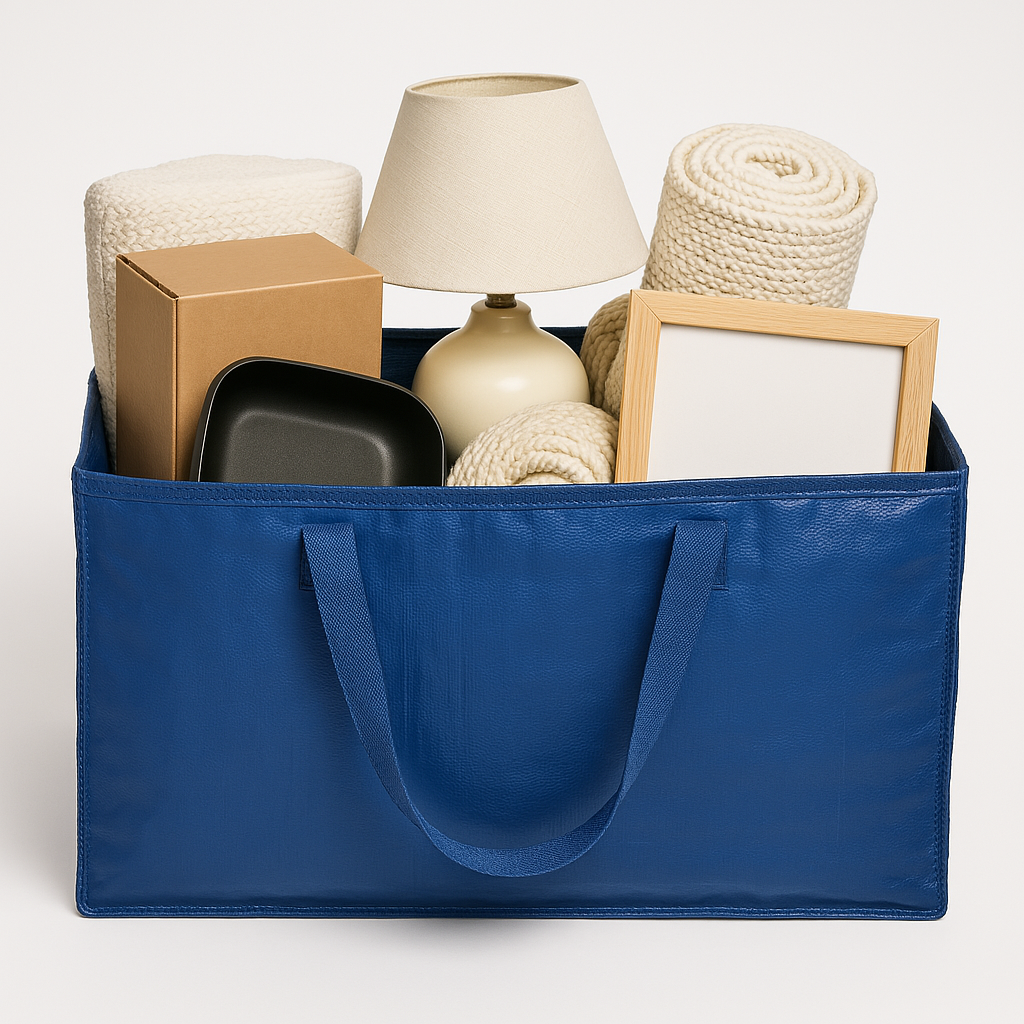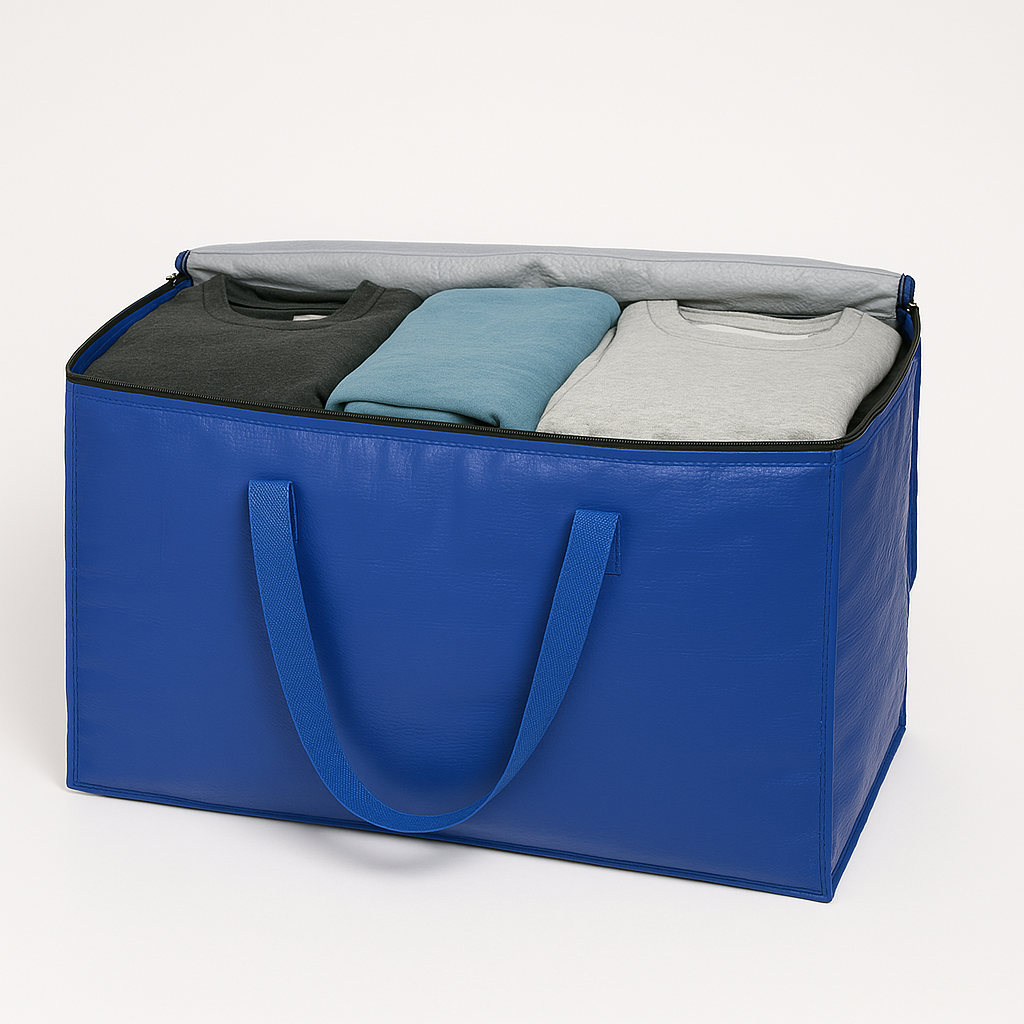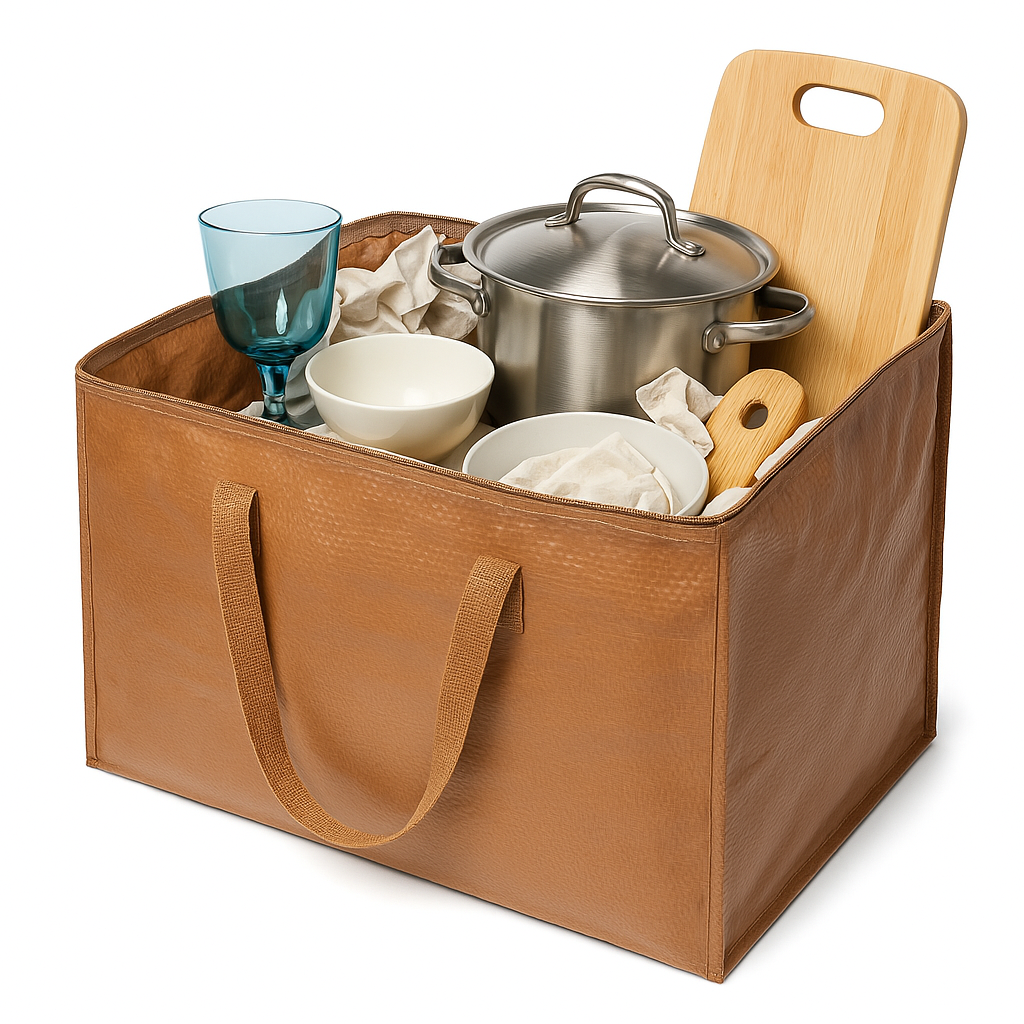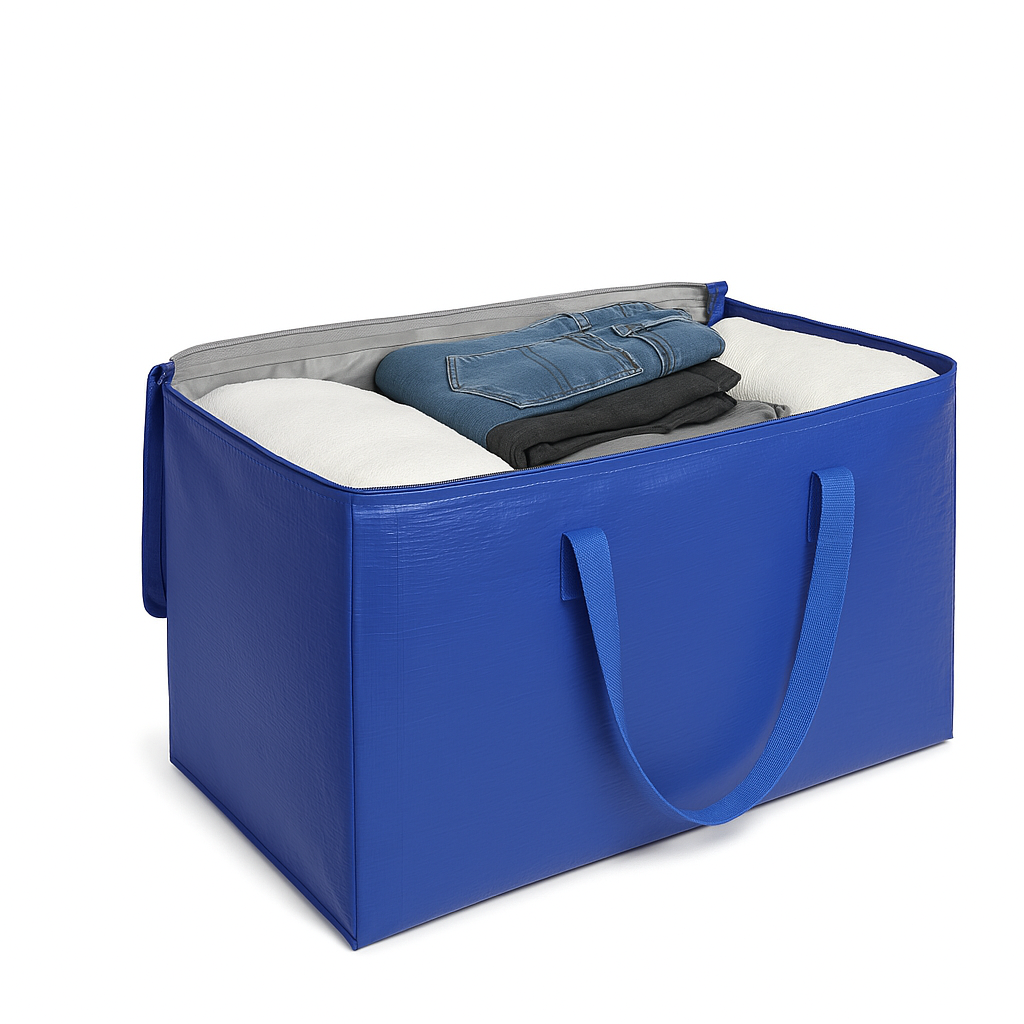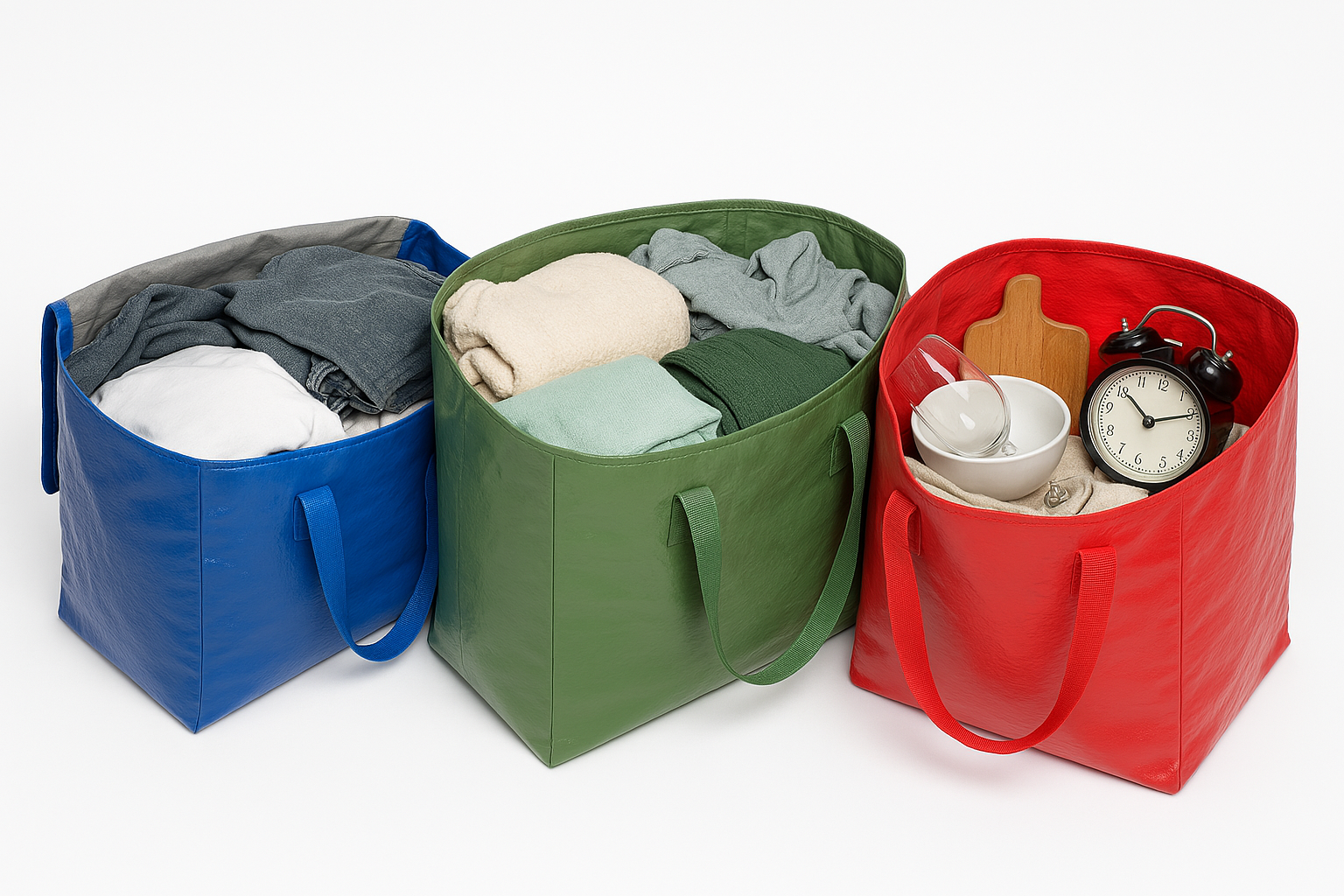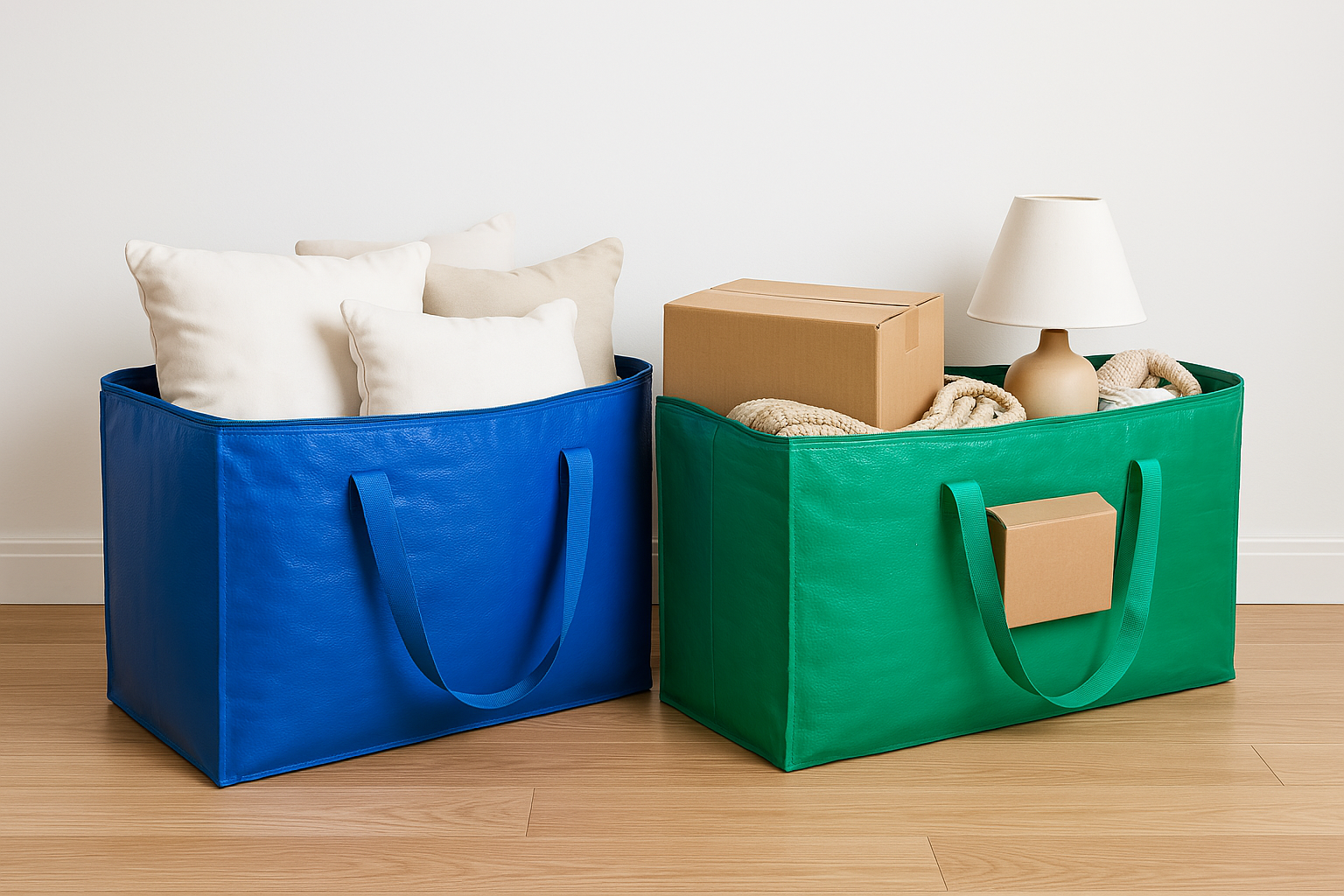Packing a bag for moving can quickly become stressful—too many items, not enough time, and no idea where to start.
To pack a bag when moving, begin weeks in advance, organize by category, use proper materials, and label every item clearly1.
This guide covers when to start packing, how professionals do it, what rooms to start with, and how to save time.
How soon before a move should you start packing?
Leaving packing to the last minute leads to mistakes, broken items, and unnecessary stress. Starting early helps you stay calm and in control.
Start packing 4 to 6 weeks before your move2. Begin with infrequently used items and rooms, and work toward daily essentials.
Planning ahead reduces stress
I used to think packing could be done in a few days, but learned the hard way. Starting early gives me time to sort, donate, and clean while packing. I avoid stuffing random things into bags last minute. It also gives time to order boxes or packing tape if I run out.
A Week-by-Week Packing Plan
| Time Before Move | Packing Tasks |
|---|---|
| 6 Weeks | Declutter, give away or donate unused items |
| 5 Weeks | Pack non-essential décor, seasonal items |
| 4 Weeks | Start with storage, garage, guest rooms |
| 3 Weeks | Pack books, less-used kitchen items |
| 2 Weeks | Pack clothing not in season, rarely-used dishes |
| 1 Week | Finalize main living spaces, bathrooms, kitchen |
| 2 Days | Pack essentials in a separate "moving bag" |
Give yourself more time than you think. Life doesn’t stop just because you’re moving.
What is the hardest room to pack when moving?
The kitchen has the most fragile, oddly shaped, and essential items. It’s no surprise that people often leave it until the end—and regret it.
The kitchen is the hardest room to pack due to fragile dishes, food, and awkward appliances that require extra care3.
Why the kitchen is so complicated
When I help clients with their moves, I always block out an entire day for the kitchen. Unlike books or clothes, every cabinet is a new challenge. Plates need bubble wrap, knives need safety sleeves, and food needs checking for expiration or leaks.
The packing pace slows here due to cleaning and organizing. Plus, kitchens often hold items you still need until the last moment—like your coffee maker or microwave.
Smart Packing Tips for Kitchens
| Item Type | Strategy |
|---|---|
| Plates & Glasses | Use bubble wrap, paper, or cloth; label as fragile |
| Pantry Items | Toss expired food, use sealed containers |
| Small Appliances | Clean thoroughly, remove detachable parts |
| Knives & Utensils | Wrap in towels, place in labeled boxes |
| Pots & Pans | Nest together, fill with small kitchen items |
Leave one small box unpacked with a few essentials: fork, knife, mug, plate, sponge, dish soap, and towel. Label it “First Kitchen Box.”
How do professional movers pack?
There’s a reason movers seem fast and flawless. It’s not just experience—they follow a tight system that removes guesswork4.
How professionals move smarter
When I observed professional movers for the first time, I realized they don’t waste a second. They bring uniform-sized boxes, which stack easily. They label every side of every box. Fragile items are always double-wrapped. They never overpack or mix unrelated items.
Another big secret? Load order. Heavy stuff goes in first. Light, fragile things go on top. They also place essentials at the back of the truck for easy access.
Professional Mover Strategies
| Technique | Why It Works |
|---|---|
| Uniform Box Sizes | Easier to stack and move |
| Label on All Sides | Faster to find things in a full truck |
| Heavy on Bottom | Prevents damage to lighter boxes |
| Fragile Items Protected | Wrap in layers with bubble wrap or blankets |
| Priority Code System | “Open First,” “Essential,” or “Storage” tags |
These tips have changed how I approach every move. I mimic their methods now—even when I’m just moving rooms or doing home renovations.
What is the fastest way to pack for a move?
Sometimes we don’t have 6 weeks. Maybe it’s a last-minute decision or a sudden lease ending. That’s when speed becomes essential.
To pack fast, set up a dedicated packing station, skip organizing, and focus on getting everything into boxes5.
Fast packing doesn’t mean sloppy packing
The key to moving fast is making fewer decisions. Don’t sort things by category or room—just pack and label. I’ve helped people pack entire apartments in under 5 hours this way. It’s not ideal for unpacking, but it gets the job done when time is short.
Keep supplies in one central place: tape, scissors, labels, bubble wrap, and boxes. You’ll save time running around the house.
Emergency Packing Checklist
| Strategy | Why It’s Fast |
|---|---|
| Skip Sorting | Grouping slows you down—do it later |
| Use Towels & Clothes | Wrap fragile items with what you already have |
| Pack by Drawer | Empty whole drawers directly into bags or boxes |
| Pre-label Boxes | Use colored tape or pre-written labels |
| Prioritize Essentials | Pack 1–2 suitcases of daily use items first |
Fast packing is about momentum. Once you start, keep going without overthinking.
What room to pack first when moving?
Packing your living room first might feel logical, but it’s the wrong move. The smartest strategy is to start where disruption is minimal.
Start with storage spaces, guest rooms, or any low-traffic areas that won’t affect your daily life6.
Less stress = better progress
I start every move by tackling storage closets, spare bedrooms, and attics. These areas usually have non-essential items like holiday decorations or unused sports gear. Emptying these first builds momentum, clears space for staging other boxes, and keeps daily life uninterrupted.
Rooms like the kitchen, bathroom, and main bedroom come last—they’re still in use daily.
Room Packing Sequence
| Room/Area | Why to Pack First/Last |
|---|---|
| Guest Room | Not used daily, easy to box up |
| Storage Closet | Full of non-essentials |
| Bookshelves | Books are heavy and need advance packing |
| Bathroom/Kitchen | Pack last—they’re used daily |
| Main Bedroom | Pack last few days before the move |
Each move is different, but starting with “easy wins” gives you momentum to finish strong.
Can you pack and move in one day?
It’s not recommended—but it can work under the right conditions: short move, small space, and a helping crew.
You can pack and move in one day if you live in a small home, prepare in advance, and have help available7.
When it works—and when it doesn’t
I once helped a friend move out of a studio apartment in four hours. But everything had to be ready: the truck booked, boxes on hand, and helpers committed. If you try this without prep, you risk forgetting essentials, damaging items, or burning out.
Also, local moves work better for this—long-distance or cross-country moves demand more planning.
One-Day Move Checklist
| Requirement | Why It Matters |
|---|---|
| Pre-Packed Supplies | No time to shop on the day of the move |
| Few Belongings | Minimalism makes this approach possible |
| Reliable Helpers | At least 2–3 people to load and unload fast |
| Short Distance | Local moves reduce time pressure |
| Essentials Packed First | Prevents mid-move stress or forgotten items |
If you must do it all in one day, don’t expect perfection—focus on survival and fix the details later.
Conclusion
Packing for a move is a process. Start early, follow a smart order, use the right materials, and borrow techniques from the pros.
-
Learn how proper materials and labeling prevent damage and confusion during a move. ↩
-
Discover why 4–6 weeks is the ideal window for stress-free packing. ↩
-
Understand why the kitchen’s complexity makes it the toughest room to pack. ↩
-
Explore how professionals save time with systems and standardized materials. ↩
-
Find out how to pack fast without sacrificing safety and efficiency. ↩
-
Learn why starting in low-traffic rooms helps reduce disruption and boost packing momentum. ↩
-
Know when same-day packing and moving can realistically work and what to prepare. ↩

